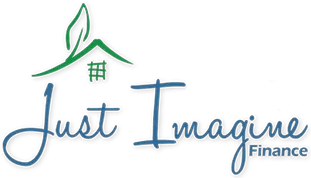
CoreLogic’s most recent home value index shows national dwelling values continued their upward trajectory in July, growing 0.5% from June to be up 7.6% year-on-year.
While growth is starting to ease, prices are now at record highs, begging the question: is property ownership increasingly out of reach?
But while Helia’s latest home buyer sentiment survey found that 89% of first home buyers felt it was harder than ever to enter the market – in large part due to the difficulties of saving a 20% deposit – many are now considering alternative strategies to get on the ladder.
These strategies include:
– Paying lender’s mortgage insurance (LMI) – with 92% of respondents considering this
– Getting a helping hand from mum and dad – with 45% receiving financial assistance
– Taking advantage of federal government home buying schemes – with 48% exploring this option.
Let’s now look at these three strategies in more detail.
Lender’s mortgage insurance (LMI)
LMI is a one-off insurance premium added to your home loan that many lenders require if you’re borrowing more than 80% of the property’s value (i.e. your deposit is less than 20%). It’s calculated based on the size of your deposit and how much you borrow.
But while you pay the premium, LMI protects the lender, not you, in the event you default on your loan.
Pros:
– LMI lets you buy a home with a smaller deposit, possibly as low as 5%, making it easier to enter the property market sooner. This can be potentially advantageous if property prices are rising faster than your ability to save.
– Owning a home allows you to start building equity, potentially benefiting from property appreciation over time.
Cons:
– Depending on your loan amount and the size of your deposit, LMI could add thousands of dollars to your loan amount. This cost is usually either paid upfront or added to the loan principal, meaning you’ll also be paying interest on it over the life of the loan.
– LMI doesn’t protect you if your lender ends up selling your home because you can’t make the mortgage payments
The ‘bank of mum and dad’
As wages struggle to keep up with rising housing costs, more young Australians are turning to their parents for help with deposits, mortgage co-signing or direct loans.
This financial assistance is colloquially referred to as the ‘bank of mum and dad.’
It’s estimated to be the ninth-largest Australian lender with a recent report by the Australian Housing and Urban Research Institute finding 60% of first home buyers in Australia received financial help from their parents.
Pros:
– Getting financial help from parents can make it much easier to own a home.
– Family loans often have lower or no interest rates and more lenient repayment conditions.
– A bigger deposit, boosted by parental help, might mean you can skip paying LMI.
Cons:
– Borrowing money can strain family relationships, especially if there are disagreements or difficulties with repayment.
– Parents who dip into their savings to help their kids might jeopardise their own financial security
– The bank of mum and dad can push up property prices by boosting the purchasing power of first-time buyers beyond normal market levels.
Federal government housing assistance schemes
The Home Guarantee Scheme (HGS) aims to help eligible home buyers enter the property market sooner by offering government-backed guarantees on home loans.
These guarantees enable buyers to purchase homes with a small deposit without paying LMI.
In the 2024-25 financial year, there are 50,000 new spots available in the HGS divided among three guarantees:
– 35,000 places under the First Home Guarantee
– 10,000 under the Regional First Home Buyer Guarantee
– 5,000 under the Family Home Guarantee
Then there’s Help to Buy, a proposed scheme that will support eligible home buyers with an equity contribution of up to 40% for new homes and 30% for existing homes. The scheme is currently going through Parliament.
Looking to buy your first home? Just Imagine Finance can help you get on the property ladder. To discuss your options, contact us on catherine@justimaginefinance.com.au or 0414 673 359.



